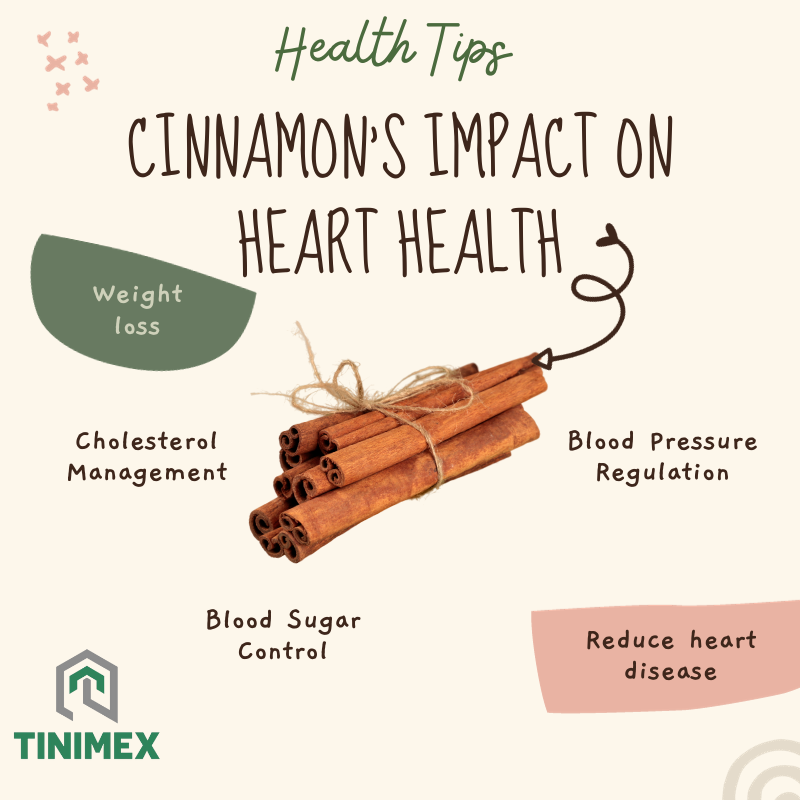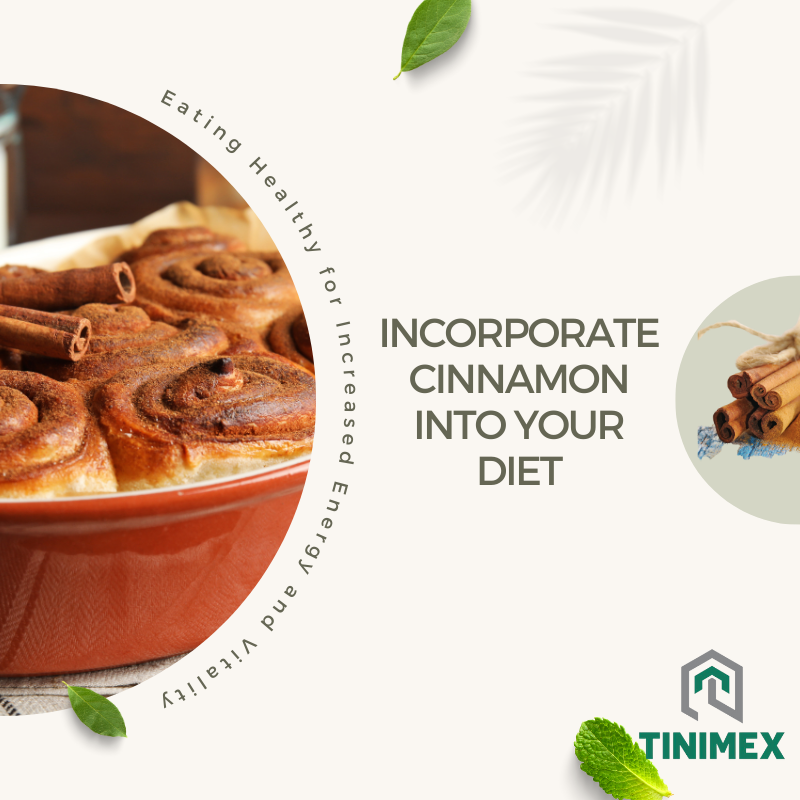Cinnamon’s Role in Cardiovascular Wellness: Heart Health Benefits
In the realm of natural remedies for promoting heart health, cinnamon stands out as a flavorful and versatile spice that offers a range of benefits. This aromatic bark, often associated with cozy, comforting dishes, has been studied extensively for its potential positive effects on cardiovascular wellness. In this article, we’ll explore the intriguing connection between cinnamon and heart health, backed by scientific evidence.

Understanding Cinnamon
Cinnamon is derived from the bark of trees belonging to the Cinnamomum genus. There are two primary types of cinnamon: Cassia cinnamon and Ceylon cinnamon. While both offer health benefits, Ceylon cinnamon is often considered the “true” cinnamon and is preferred for its milder flavor and lower coumarin content, which is a compound that can be harmful in large quantities.
Cinnamon’s Impact on Heart Health

1. Blood Pressure Regulation
High blood pressure (hypertension) is a significant risk factor for heart disease. Cinnamon contains compounds that may help relax blood vessels, potentially leading to a reduction in blood pressure. A study published in the journal “Nutrition” found that cinnamon extract helped lower blood pressure levels in hypertensive rats.
2. Cholesterol Management
Maintaining healthy cholesterol levels is crucial for heart health. Some research suggests that cinnamon may help lower LDL (bad) cholesterol levels while increasing HDL (good) cholesterol. These effects can contribute to a reduced risk of atherosclerosis and heart disease.
3. Blood Sugar Control
Type 2 diabetes and heart disease often go hand in hand. Cinnamon has been investigated for its potential to improve insulin sensitivity and lower blood sugar levels, which can be beneficial for individuals with diabetes. Stable blood sugar levels are essential for overall cardiovascular wellness.
Incorporating Cinnamon Into Your Diet

To harness the heart-healthy benefits of cinnamon, consider incorporating it into your daily diet. Here are some creative ways to enjoy this spice:
- Cinnamon Tea: Steep a cinnamon stick in hot water for a soothing and fragrant tea. This is an excellent way to enjoy the flavor and potential benefits of cinnamon.
- Cinnamon in Smoothies: Add a pinch of ground cinnamon to your morning smoothie for an extra burst of flavor and potential heart-protective effects.
- Oatmeal and Cereal: Sprinkle ground cinnamon on your oatmeal, cereal, or yogurt for a comforting and heart-healthy breakfast.
- Baking: Cinnamon is a common ingredient in baked goods. Consider using it in recipes for muffins, pancakes, and other treats.
Cautions and Considerations
While cinnamon offers promising heart health benefits, it’s essential to use it in moderation. Excessive consumption of coumarin-rich Cassia cinnamon may lead to liver damage over time. Therefore, if you plan to use cinnamon as a supplement, consider opting for Ceylon cinnamon, which has lower coumarin levels.
Moreover, if you have any underlying health conditions or are taking medications, consult with your healthcare provider before making significant dietary changes or taking cinnamon supplements.

In Conclusion
Cinnamon’s role in cardiovascular wellness is an exciting area of study with promising findings. Incorporating this aromatic spice into your daily diet may offer several heart health benefits, including blood pressure regulation, cholesterol management, and blood sugar control.
Remember that while cinnamon can be a flavorful addition to your meals and beverages, it should be part of an overall heart-healthy lifestyle that includes a balanced diet, regular physical activity, and medical supervision when necessary. Always consult with your healthcare provider before making significant dietary changes, especially if you have existing health concerns.
By embracing the potential benefits of cinnamon and making informed choices, you can take a proactive step toward supporting your cardiovascular wellness and enjoying the delicious flavors this spice has to offer.
Related News:
1. The Healing Brew: Exploring Cinnamon Tea Benefits
2. Digestion Made Easier: The Power of Cinnamon Benefits
3. Lowering Cholesterol with Cinnamon: A Science-Backed Approach

